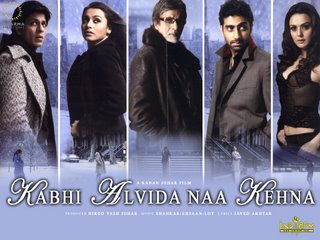Character Aptitude TestCharacter is what you do when no one is looking. And that is something an IIM cannot teach you.
(originally published on www.businessworldindia.com where I write a monthly column titled 'Life, liberty and the pursuit of yuppeiness')Like thousands of twenty somethings, Gaurav Mathur dreamt of getting into an IIM. Unlike thousands of others, he actually did make it. But his dream was cut short just two weeks into the course.
A condition for joining any of the IIMs is that all the requirements for graduation of the student should be complete by June 30, 2006 (that is, in case the student does not have a Bachelor's Degree) for joining sessions of 2006-2008 batch.
In Gaurav's case, this was not so. Gaurav had just completed his fourth year of studies at MBM Engineering College, Jodhpur. After fighting a court case, he had succeeded in getting all the theory and practical exams done by June 30, 2006 but his Project, Seminar and Educational tour were still pending.
“I asked my case to be considered by Rajasthan University and made all sorts of efforts, but maybe because of the court complications (or simply my bad luck), things didn't turn out right. I then put my case to IIM Calcutta,” says Gaurav.
IIM C agreed to consider his case but asked him to sign he would abide by the decision of the Academic Council. The Council decided against Gaurav, and he was asked to leave IIMC.
But I am moved to write this column not to rant against rules and bureaucratic procedures – yes they infect even the IIMs which, ironically, impart education in management . This column is about the choice that Gaurav had – but didn't make. A choice which would have allowed him to keep his hard-won seat. But one he did not make because his inner voice would not allow it.
In
Gaurav's own words:
There was little chance that my project etc would be completed before that date. I fought hard for it. But I knew it was almost impossible. So there were 3 choices left -
1. Convince some teacher to sign the certificate.
2. Forge a sign and put a false seal.
3. Modify the certi, honestly say that projects etc were not complete and plead before IIMC in the name of Justice.
Since no teacher was ready to sign a fraud certi, option 1 was out. Option 3 was almost sure to not let me inside IIMC …
Well wishers urged Gaurav to take option 2. A friend even had a copy of the seal to be forged and signing would be no big deal for anybody. Apparently, a babu would be checking the certificate – he would just take a look at it and put it in a box – ‘to be opened only when I would leave IIMC with my degree'. And everything would be ok by then.
Says Gaurav: “Looking at the practical side… I was doing nothing wrong. I deserved IIMC. I had earned it. And my seat will not be going to someone else. It is wasted. So I was not harming anyone either. And this logic was strong. Even my dad was ok with me getting a false sign on that certificate. (My friend) Sundeep had talked to him. Kabhi kabhi Krishna ban na padta hai.”
But something was not right - Gaurav was torn apart. What's more he had a scooter accident – and many other near accidents – which he took as a sign from God to do ‘the right thing'.
Finally on 29 th June 2006 he decided against submitting a forged certificate. He took his chances with the Academic Council and lost his seat.
Says Gaurav, “I do not regret my decision. I still have a lot of pain and anger in me. But somehow, among all the consternation and chaos, there is peace inside my heart. When you think about it, that inner voice, that self - respect, and yes, your bloody life.. is more important than an IIM.”
Faced with a dilemma similar to Gaurav, most would have chosen differently. Especially in a case where, like him, you have a reasonable chance of getting away with it. That's exactly what happened at one of the IIMs during the placement season earlier this year. A Placecom (Placement Committee) representative was found to have embellished his bio-data.
The ironic bit is that this institute has a mechanism to curb such fudging – all students are asked to submit their CVs for verification before they are accepted as the ‘official' CV to be given to recruiting companies. But here's the thing – the Placecom reps are the ones doing the scrutiny and so it really becomes a case of ‘who will police the policemen?'
The matter reached the Dean and acting Director of Placements. But can you believe it - - no action was taken! To quote a student who watched the entire proceedings with shock and disgust, “The guy escaped without a hair unhurt and was followed by others who were similarly inspired by him to decorate their resumes!”
The actual ‘decoration' falls in the nature of the inane. Some of the discrepancies (identified by comparing the candidate's summer placement and final placement CV):
• ‘All India Winners – FCB Ulka Marketing Case contest' (truth: his team was shortlisted for the final but did not actually win)
• Finalist (top 5 out of 200 teams), Marketing Case at Confluence – the International Business School Festival of IIM Ahmedabad (Confluence website shows his team was not shortlisted)
• Award of Honour for securing 3 rd rank in North India (in the summer CV he claimed to have got 4 th rank in his city – no mention of state honours)
And there are 9 more such points. All small - and in my opinion unnecessary lies - but which add up to one thing: lack of integrity.
What is worse is the institutional response – rather the lack of it. The thought of ‘ruining a fine young man's career' is what probably stopped the authorities from taking appropriate action. Which I think should have simply been: ‘debarred from placement'. And I don't think their kindness will teach him any kind of lesson. If anything, he would be emboldened, knowing that one can get away with it. And so would others.
In fact, Gaurav Mathur had far more to lose – and yet he made a difficult choice. The CV Fudger was a high performer anyways, and the fudging was merely to improve his chances of getting into a ‘dream job' where competition is stiff. And that I feel makes his action even more damning. Not to mention dangerous…
Because there are a number of job profiles where you have enough freedom to be tempted to misuse it. And there can be horrific consequences, as IIM Bangalore graduate Anshul Rustagi learnt the hard way. According to news reports, Deutsche Bank dismissed the 26 year old derivatives for overstating profits by some 30 million pounds over a two-month period last year. He left the bank following a disciplinary hearing on January 10 th 2006.
Anshul traded complex financial instruments known as synthetic collateralised debt obligations (CDOs). The Financial Times
noted: "The London-based former rising star was involved in trading highly illiquid and innovative products in the fast-growing world of credit derivatives and was part of a team given a free rein by the bank. Deutsche Bank executives said that in rarefied areas such as complex derivatives there was more reliance on individual bankers than on the risk managers who control them".
The motivation: most likely, a higher bonus. Given the complex nature of the instrument Anshul would have hoped to eventually make that money or square off the overstatement in some manner – and nobody would have been the wiser. But his luck ran out.
It all boils down to your personal value system. Of wanting to be a ‘star' even if it means doing the wrong thing. Justifying to yourself that others probably do it too, so what's the big deal?
The latest
KPMG Forensic Integrity Survey found that there's been ‘no real decrease in the amount of unethical activity going on inside companies'. 74 % of employees reported misconduct, compared with 76 per cent five years ago. The level of serious misconduct now stands at 50 %, compared with 49 % in 2000.
So maybe the CV fudger has it all right after all – and will go on to do brilliantly in his corporate career. Gaurav Mathur, with his more active conscience should consider other career options.
Also read: my earlier post:
Ethics of MBAsCorrection: The CV fudger was in fact debarred from placement - but not expelled. Read my update.
 1. The backwaters are not just beautiful but amazingly clean. Wonder how and why? Where do the villagers dump their waste? And can we in the rest of plastic-bag India not learn a thing or two from them??
1. The backwaters are not just beautiful but amazingly clean. Wonder how and why? Where do the villagers dump their waste? And can we in the rest of plastic-bag India not learn a thing or two from them?? 2. Banana can be eaten steamed, fried or sauteed. For breakfast, lunch, snack or dinner. And still taste good!
2. Banana can be eaten steamed, fried or sauteed. For breakfast, lunch, snack or dinner. And still taste good! 3. Coke and Pepsi are indeed banned. But there are underground channels to procure the stuff - like you have for booze in Gujarat!
3. Coke and Pepsi are indeed banned. But there are underground channels to procure the stuff - like you have for booze in Gujarat! 4. Gold, gold and more gold. Every third hoarding bears smiling young women - thin, fat, young, middle-aged - weighed down by the precious yellow metal. And oh, you can even take a 'gold loan' at 12% to buy the stuff, wear it and stash it away in a locker.
4. Gold, gold and more gold. Every third hoarding bears smiling young women - thin, fat, young, middle-aged - weighed down by the precious yellow metal. And oh, you can even take a 'gold loan' at 12% to buy the stuff, wear it and stash it away in a locker. 5. Buses in Kerala have no windows. I mean glass ones. Perhaps too many have been broken by protesters and unions in the past?
5. Buses in Kerala have no windows. I mean glass ones. Perhaps too many have been broken by protesters and unions in the past?


